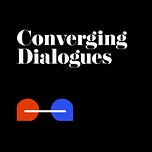In this episode, Xavier Bonilla has a conversation with Michael Cook about the history of the Muslim world. They discuss Islamic civilization from origins to modernity, early antecedents before Islam, genesis of Islam, and the Prophet Muhammad and his creation of a monotheistic religion and state. They discuss succession after the death of Muhammad and the caliphate, the Umayyid dynasty, the Abbasid dynasty, and how important Islam and the Arabic language were for an Islamic civilization. They talk about the origin of the Turks, Bilga Qaghan, Turks being pagan and interacting with Islam, and the three ways the Turks spread out of the Steppe. They discuss the Mongols and their relationship with Islam, the Seljuk dynasty, the Safawid dynasty and the impact of Shiism. They also talk about the Ottoman Empire and their administration and integration of other cultures. They discuss the spread of Islam into India by conquest and merchants, Islam in Southeast Asia and around the Indian Ocean, Sahara and central Africa, and conflict between Christians and Muslims in Ethiopia. They also discuss Arab identity, Islam’s spread through conquest, Islam juxtaposed with other religions and cultures, Islam in the modern period, future of Islam, and many other topics.
Michael Cook is the Class of 1943 University Professor of Near Eastern Studies at Princeton University. He was educated at Cambridge studying English and European history and learned Turkish and Persian. He was also educated at the School of Oriental and African Studies in the University of London, emphasizing research into Ottoman population history in the fifteenth and sixteenth centuries. He spent many years teaching and researching Islamic history at the School of Oriental and African Studies. He is the author of numerous books, including the most recent book, A History of the Muslim World: From its Origins to the Dawn of Modernity.













Share this post